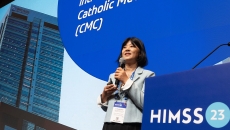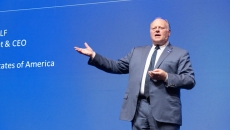Artificial Intelligence
HIMSS23 APAC
Home hospitalisation, tech-enabled preventive care, and genomic data-driven personalised care are some of the emerging trends in care in the Asia-Pacific region.
HIMSS23 APAC
Health CIOs shared outcomes, considerations, and success factors in implementing new technologies to advance care.
HIMSS23 APAC
This HIMSS23 APAC session put a spotlight on the hospital's recent digital transformation journey.
HIMSS23 APAC
If they want to apply these models, it has to be hosted locally to preserve data integrity, said Dr Roel Bolt, CMIO of Franciscus Hospital.
Also, Noted has integrated with the Medicly HIE to provide its users access to data across health facilities.
"By prioritizing healthy data management practices through the deployment of AI, IT leaders can make a huge impact on the day-to-day experiences across a healthcare organization," says one CTO.
The Oracle Clinical Digital Assistant tool can also respond to conversational voice prompts from clinicians, the company says, as it aims to "reduce mundane work that leads to burnout."
HIMSS23 APAC
Making digital health an extension of health facilities can help organisations meet the growing shortage of health workers, says HIMSS President Hal Wolf.
It has helped find 231 additional full-day surgery blocks in OR trials.
Success Stories & ROI
One of the New Jersey health system's interventional pulmonologists tells the story of how an artificial intelligence-aided detection system is offering significant clinical ROI.







